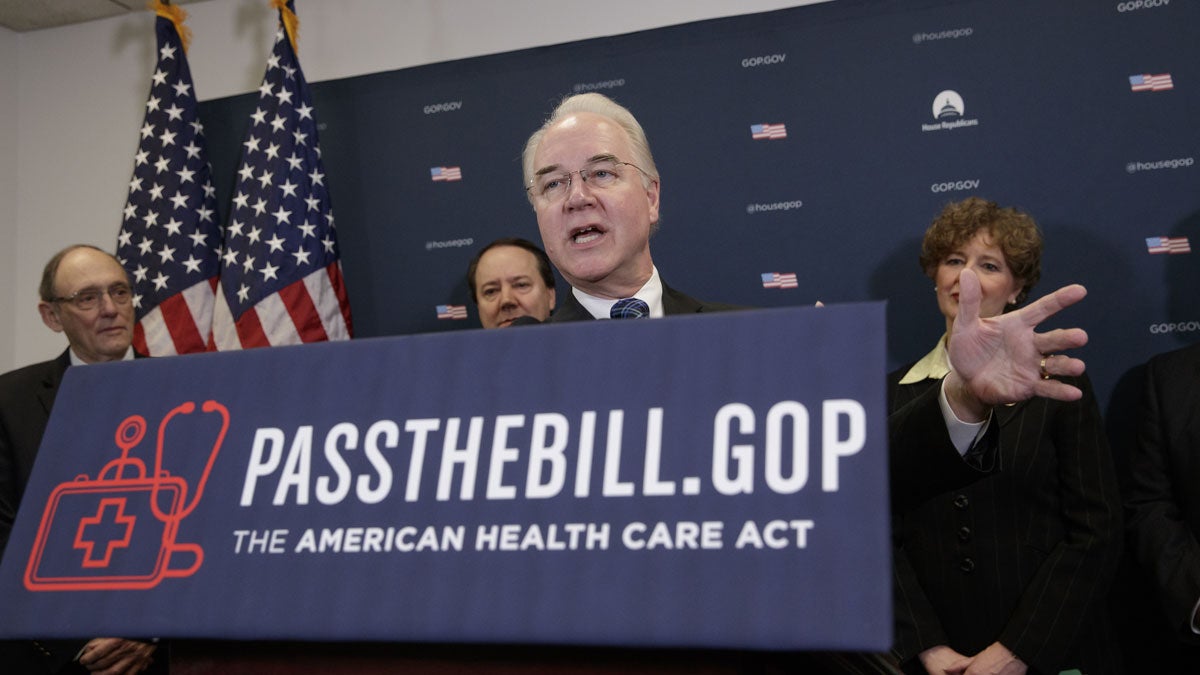Mental health advocates warn Republicans against cutting Medicaid

Health and Human Services Secretary Tom Price backs the GOP's health care plan (AP Photo/J. Scott Applewhite)
Mental health advocates don’t like what they see in the Republican plan to replace the Affordable Health Care Act.
The U.S. House of Representatives is expected to vote on the bill Thursday.
Alyssa Schatz of the Mental Health Association of Southeastern Pennsylvania is most concerned about proposed changes to Medicaid.
“Medicaid is the primary insurer for people with behavioral health conditions,” she said.
The Congressional Budget Office analysis of the bill predicts Washington would end up spending $880 billion less on Medicaid over 10 years. Some would come from sending states less money per person covered and some because fewer people would qualify for Medicaid coverage.
And the essential health benefits that Medicaid would cover would be left up to the states. Which would mean that states would not have to cover behavioral health coverage the way they do now.
“I think the federal government is basically in this bill saying to states, ok we’re going to cut your funding really dramatically, and in order for you to account for that, we’re going to allow you to enroll fewer people and we’re going to allow you to offer less generous and less comprehensive benefits,” said Schatz.
Schatz also fears what might happen in Pennsylvania specifically.
“PA is ahead of the curve in the innovation of our behavioral health services. My fear is that these services will be the first thing on the chopping block when we’re looking at billions of dollars of cuts,” she said.
Phil Lubitz of NAMI New Jersey, a mental health advocacy group, said he sees three options states would have for dealing with Medicaid changes.
“I think we have to be concerned that New Jersey is going to have to turn to one of a few bad alternatives. Reducing the number of people who can receive services, reducing the kind of service they can receive, or reducing the reimbursement to the individuals providing the services which essentially would reduce the availability of the services,” he said, adding, “We were in a precarious position even with full funding and now with the potential of that funding being reduced, I think there’s real reason for concern.”
And since Medicaid is how many people get addiction treatment, he said the current opioid epidemic makes this a bad time for such changes.
WHYY is your source for fact-based, in-depth journalism and information. As a nonprofit organization, we rely on financial support from readers like you. Please give today.

